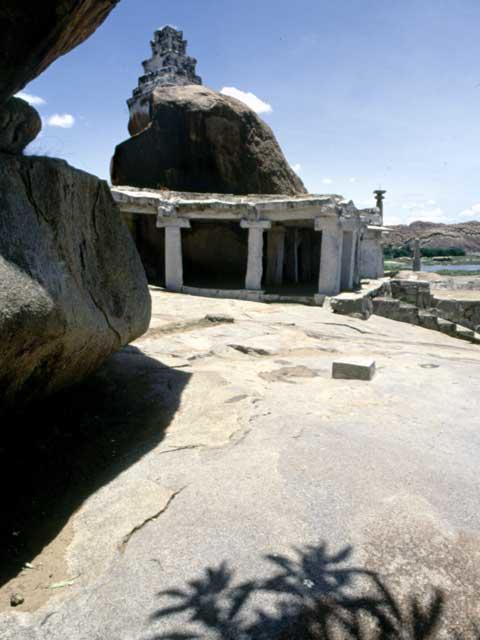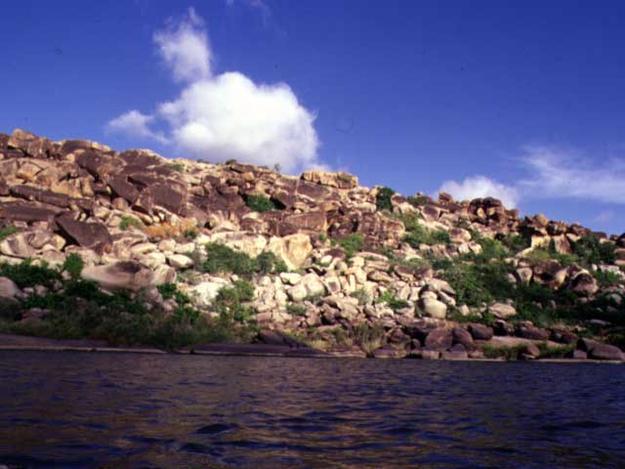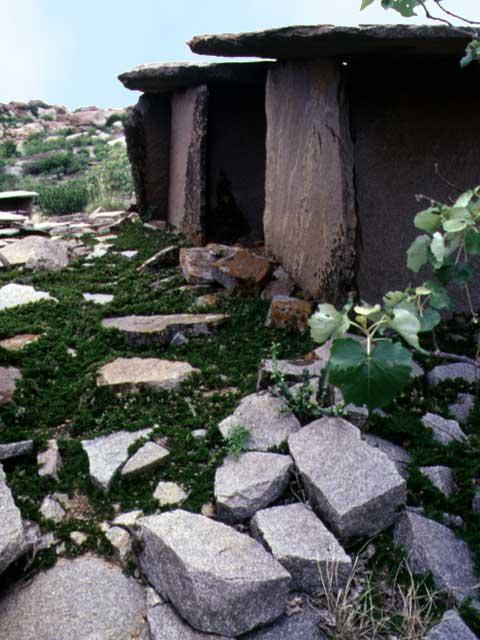Anegundi Historic Settlement
2002 World Monuments Watch
Founded in the tenth century, the fortified city of Anegundi on the northern bank of the mighty Tungabhadra River has played an integral role in Indian history. Thought to be the mother city of the medieval Hindu capital of Vijayanagara, just across the river, Anegundi served as an administrative center for much of the Karnataka region, which included a number of ancient cities mentioned in the 2,000-year-old Hindu epic, the Ramayana. Though Anegundi faded into the background during the Vijayanagara period, it once again rose to preeminence in the sixteenth century, becoming a place of refuge for the Hindu royal court after Vijayanagara fell to the Muslims in 1565. It retains many of the architectural forms that were once common at Vijayanagara, but subsequently destroyed. It has also become a place of pilgrimage for Hindus, who believe it to be Kishkinda, birthplace of Lord Hanuman, the monkey god. Today, the remains of imperial structures can be seen throughout the village, architectural elements within several shrines dating to the tenth century. Anegundi is a quiet village with elegant examples of rural architecture set among its ancient ruins – its modern inhabitants continuing to use centuries-old stone irrigation channels built by Hindu kings. Until recently, Anegundi remained relatively isolated, preserving much of its ancient form. However, increasing pressures in the area now threaten the city, including the construction of a bridge and railroad that would ruin its picturesque appearance. A management plan for its long-term preservation needs to be developed.
Since the Watch
Construction of the proposed bridge that was feared would dramatically escalate development pressure resumed in 2008. While still under construction, the bridge collapsed in January 2009, killing eight individuals. Currently, a new location for a new bridge over the Tungabhadra River is being sought. January 2011



